Every aspect of life is better when you're healthy, so we present to you the potency of wildcrafted medicine!
Knowledge is power; you can take responsibility for your own wellbeing when you know your options.
Calendula (Calendula officinalis) is a member of the marigold family. It is said to bloom on the first few days of the Roman calendar month (the "calends", which corresponded to the new moon cycle), hence the name. It is respected as a wildflower, grows cultivated as a beautiful ornamental in gardens, and has been used for healing throughout history all across the world!
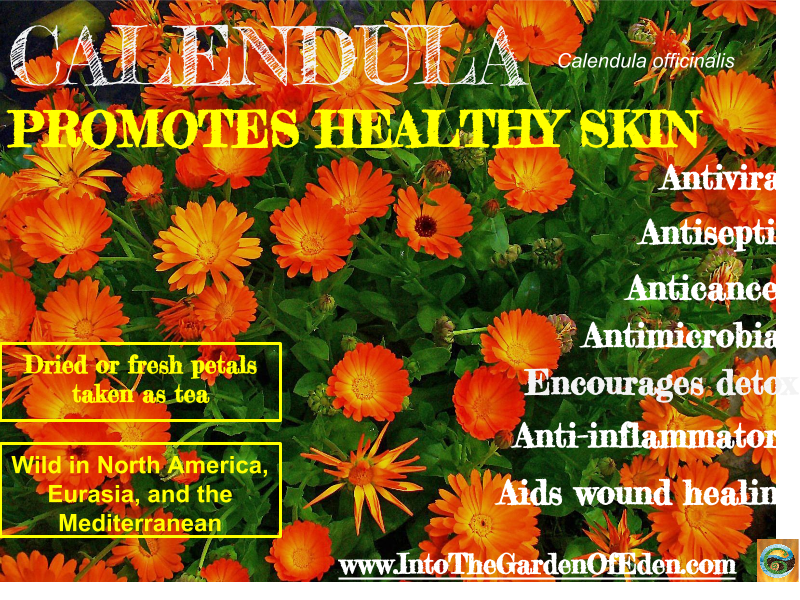
The portion of the calendula plant that appears to be the flower is actually a specialized structure called an inflorescence.
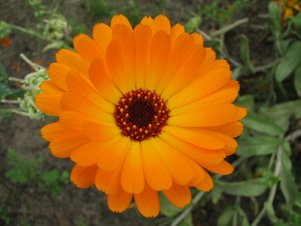
Calendula has bright yellow to orange daisy-esque flowers. The flower heads are actually composed of wee little florets that blossom according to the geometric pattern of the Fibonnacci sequence, radiating out into the petals (which are specialized flowers themselves called ray florets). The hairy, oblong leaves are a rich green and alternate up the main stalk. The plant grows 40-70 cm tall (that's about 16"-28" for Americans) with a deep taproot.
Calendula contains essential oils, salicylic acid, phytosterols, carotenoids, glycosides, flavonoids, terpenoids, and tannins.
Calendula is used for cooking, teas, dyes, and as oil and skin tonic. The flowers and leaves are edible. The dried plant can be used as tea, tincture, or oil. Crushed fresh leaves can be applied to wounds.
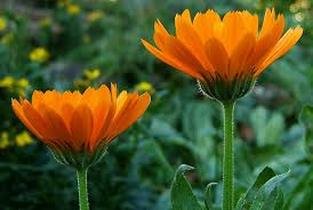
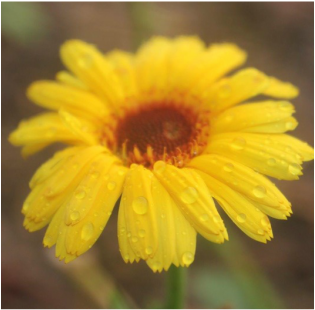
Calendula healing powers:
- increases blood flow
- antibacterial & analgesic effects
- antispasmodic
- supports healthy skin
- heals wounds
- improves digestion
- antiviral
- anti-inflammatory
- detoxes through promotion of bile flow and induction of sweating
- fever reducer
- stimulates blood flow in pelvis, regulating menstruation
- can abort a weak pregnancy
- encourages healthy liver & lymphatic system
- alleviates sore throat
- anticancer
- promotes oral health
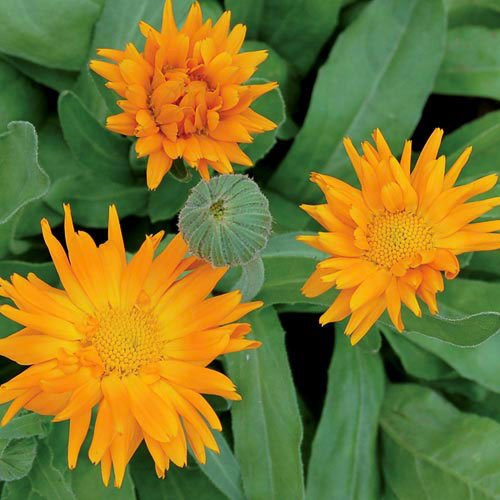
You can add calendula leaves and petals to egg salad! Add the petals to baked goods from cornbread to muffins to cake. The petals make a lovely addition to salads and sandwiches too.
To use calendula as a skin tonic, boil a cup of water and pour over fresh petals. Allow to cool then spray on skin.
References
http://www.britannica.com/plant/Asteraceae
http://www.botanical-online.com/english/calendula_plant.htm
https://www.mountainroseherbs.com/products/calendula-flowers/profile
www.intothegardenofeden.com

